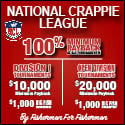10% is about all we have been able to use for years here in Indiana.. No problems if you run an additive with it. I run 1oz of seafoam per gallon. We can get pure gas but its at 91 octain and at that high its worse than ethanol unless your motor was designed to run on it. Its the 15% you dont want.


 Likes:
Likes:  Thanks:
Thanks:  HaHa:
HaHa: 

 Reply With Quote
Reply With Quote





















